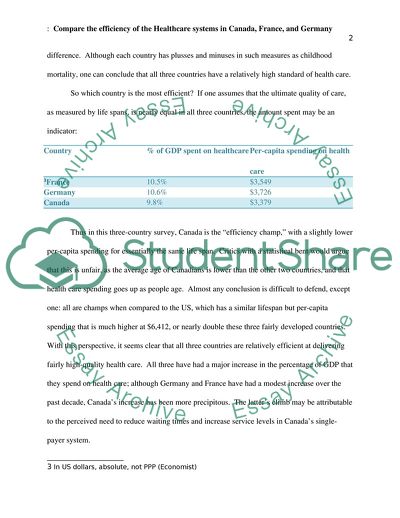Cite this document
(The Efficiency of the Healthcare Systems in Canada, France and Germany Essay, n.d.)
The Efficiency of the Healthcare Systems in Canada, France and Germany Essay. https://studentshare.org/health-sciences-medicine/1710747-compare-the-efficiency-of-the-healthcare-systems-in-canada-france-and-germany
The Efficiency of the Healthcare Systems in Canada, France and Germany Essay. https://studentshare.org/health-sciences-medicine/1710747-compare-the-efficiency-of-the-healthcare-systems-in-canada-france-and-germany
(The Efficiency of the Healthcare Systems in Canada, France and Germany Essay)
The Efficiency of the Healthcare Systems in Canada, France and Germany Essay. https://studentshare.org/health-sciences-medicine/1710747-compare-the-efficiency-of-the-healthcare-systems-in-canada-france-and-germany.
The Efficiency of the Healthcare Systems in Canada, France and Germany Essay. https://studentshare.org/health-sciences-medicine/1710747-compare-the-efficiency-of-the-healthcare-systems-in-canada-france-and-germany.
“The Efficiency of the Healthcare Systems in Canada, France and Germany Essay”. https://studentshare.org/health-sciences-medicine/1710747-compare-the-efficiency-of-the-healthcare-systems-in-canada-france-and-germany.


